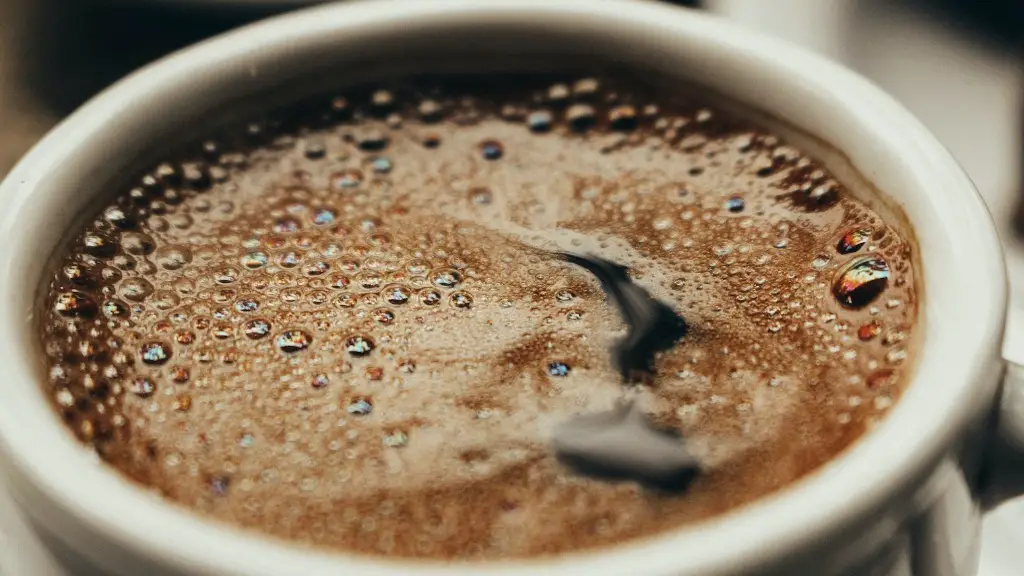Breastfeeding mothers often wonder if it is safe to drink coffee while nursing their babies. Coffee contains caffeine, which is a stimulant that can pass through breast milk and affect your baby. Caffeine can make a baby more alert and fussy. Therefore, it is important to understand the effects of caffeine when breastfeeding before drinking coffee or any other caffeinated beverage.
Caffeine can be found in many beverages, foods, and medicines. It is important to monitor the amount of caffeine you consume each day while nursing your baby. Too much caffeine can cause restlessness and difficulty sleeping for your child. Therefore, it is best to limit caffeine intake to no more than 300 milligrams per day (equivalent to two 8-ounce cups of coffee). Any additional caffeine should be avoided.
In general, moderate consumption of coffee by breastfeeding mothers appears to be safe for their babies. However, if your baby is particularly sensitive to the effects of caffeine or has difficulty sleeping or fussiness after you have consumed caffeinated beverages, then it may be best for you to limit or avoid caffeine altogether.
Effects of Caffeine on Breastfeeding Babies
Caffeine intake while breastfeeding can have an impact on both mothers and their babies. Caffeine is known to pass through breast milk, and it can affect a baby’s sleep patterns and irritability levels. For this reason, it is important for breastfeeding mothers to be aware of how much caffeine they are taking in. Although some studies suggest that there is no harm in moderate caffeine consumption for breastfeeding mothers, it is always recommended to err on the side of caution.
For mothers who wish to enjoy a cup of coffee or other caffeinated beverage, it is best to have it first thing in the morning or shortly before nursing. This will allow time for the caffeine levels to decrease in the mother’s bloodstream and reduce the amount that passes into her breastmilk. It is also recommended to avoid consuming large amounts of caffeinated drinks throughout the day, as this could lead to an increase in the amount that passes into breast milk. Additionally, mothers should be aware that caffeine has a diuretic effect, causing them to lose more fluids than usual. This can lead to dehydration and low milk supply if not monitored carefully.
Understanding the Impact of Coffee on Breastfeeding
Many breastfeeding mothers are concerned about the impact that drinking coffee can have on their milk supply and their baby’s health. While there is no clear evidence that coffee has a direct negative effect on a breastfeeding baby, it is important to understand how caffeine can affect your milk supply and how it can be harmful if consumed in excess.
Caffeine is quickly absorbed into breast milk and passed on to your baby. The amount of caffeine in breast milk is directly related to the amount consumed by the mother. Studies have shown that consuming more than 300 milligrams of caffeine per day can significantly reduce a mother’s milk production. Therefore, it is important for nursing mothers to limit their caffeine intake to less than 200 milligrams per day in order to ensure adequate milk production.
It is also important to note that drinking coffee can occasionally cause babies to become fussy or have trouble sleeping. If your baby exhibits any of these symptoms after you have had coffee, it may be best to avoid it altogether or limit consumption.
In conclusion, while there is no definitive evidence that drinking coffee has a direct negative effect on breastfeeding mothers and babies, it is important for nursing mothers to be aware of the potential risks associated with excessive consumption of caffeine. It is recommended that nursing mothers limit their intake of caffeine and pay close attention to their baby’s reaction after consuming coffee, as this could indicate an intolerance or sensitivity.
Safety and Amount of Coffee Consumption for Breastfeeding Moms
Coffee is one of the most popular beverages in the world and can be part of a healthy diet. For breastfeeding moms, coffee can be consumed but in moderation. According to the Centers for Disease Control and Prevention (CDC), it is recommended that breastfeeding moms limit their overall caffeine intake to less than 300 mg per day. This means no more than 2-3 cups of coffee per day. Caffeine can pass into breast milk and may affect a baby’s sleep or feeding patterns. It is important to monitor your baby for any changes, such as fussiness or difficulty sleeping, after drinking caffeine. If you notice any changes, try reducing your caffeine intake.
In addition, it is important to pay attention to other sources of caffeine that you may be consuming throughout the day such as chocolate or energy drinks. This will help you keep track of your total caffeine intake and ensure that you are consuming an appropriate amount while breastfeeding.
Overall, moderate amounts of coffee can be consumed while breastfeeding as long as you monitor your baby closely for any signs of changes in behavior or sleep patterns that could be related to caffeine intake.
Signs Your Baby is Sensitive to Caffeine Intake
It is important to be aware of potential signs that your baby may be sensitive to caffeine intake. Caffeine can pass through breast milk, so it is important for breastfeeding moms to monitor their caffeine intake. If you are breastfeeding, it is recommended to limit your caffeine intake to less than 300 mg per day. Some potential signs that your baby may be sensitive to caffeine include fussiness and irritability, difficulty sleeping, and increased urination. If you believe your baby may be sensitive to caffeine, talk to your healthcare provider for further recommendations.
It is also important for mothers who are breastfeeding or bottle-feeding to monitor their caffeine intake as it can have an impact on their baby’s sleep patterns, feeding patterns, and overall mood. Therefore, limiting one’s caffeine intake when breastfeeding or bottle-feeding can help ensure that the baby is getting the best nutrition possible.
Alternatives to Coffee for Breastfeeding Mothers
Coffee is a popular beverage that many breastfeeding moms enjoy, but there are a few important things to consider before drinking it. Caffeine can reach the baby through breast milk and can cause restlessness, irritability, and lack of sleep in the infant. Therefore, it is important for breastfeeding mothers to limit their caffeine intake. Fortunately, there are many alternatives that provide the same flavor and satisfaction without the caffeine content of coffee.
Herbal teas are a great coffee alternative as they contain no caffeine. Many brands offer an array of flavors that provide a unique taste experience. Fruity herbal teas such as rooibos or hibiscus provide an energizing sweetness while chamomile has calming effects. Furthermore, green tea offers health benefits such as antioxidants and anti-inflammatory compounds.
Those looking for something hot but without the caffeine content of coffee may find cocoa or hot chocolate a satisfying alternative. Cocoa is naturally rich in antioxidants, minerals such as magnesium and zinc, and is believed to have anti-inflammatory properties. While sugary hot chocolate mixes can be high in calories, opting for unsweetened cocoa powder will provide similar flavor with minimal additives or sugar content.
Finally, some non-caffeinated coffee substitutes can offer a similar flavor experience but without the caffeine content of coffee. Brands such as Teeccino make flavored herbal coffees with chicory root and other herbs which can be brewed like regular coffee and even served with cream or milk if desired. Additionally some brewers offer decaffeinated versions of regular coffee using methods such as Swiss Water Process which remove 99% of the caffeine while preserving the flavor profile of traditional brews.
No matter what option you choose, it’s important to remember that breastfeeding mothers should limit their intake of caffeinated beverages
Tea and its Effect on Milk Supply
Tea is a popular beverage enjoyed by many people around the world. It can be enjoyed hot or cold and comes in a variety of flavors. Many breastfeeding moms may be wondering if it is safe to drink tea while breastfeeding. The answer is yes, tea is generally considered safe for breastfeeding moms to drink in moderation. However, it is important to keep in mind that tea does contain caffeine, which can pass into breast milk and affect the baby’s sleep patterns. Also, some studies have suggested that high doses of caffeine may reduce milk supply slightly over time.
It is important to note that these effects are typically minor and not cause for concern unless you are drinking large amounts of tea regularly. If you do choose to drink tea while breastfeeding, it’s best to opt for caffeine-free varieties or herbal teas such as chamomile or rooibos tea that are naturally caffeine-free. Additionally, it’s important to stay hydrated by drinking plenty of water throughout the day so that your body has enough fluids to produce breastmilk.
When it comes to coffee, it is generally not recommended for breastfeeding moms due to its higher levels of caffeine which could have a greater effect on baby’s sleep and milk supply than tea does. If you would like a hot beverage other than tea, herbal coffees such as dandelion root coffee are available as an alternative. Ultimately, the decision about whether or not to drink tea while breastfeeding is up to you and your health care provider. Be sure to discuss any concerns with them before making your decision.
Final Words
Overall, it is important for breastfeeding mothers to be mindful of their caffeine intake. Research suggests that modest amounts of caffeine do not appear to have a negative effect on breastfed babies. However, if a mother notices her baby having difficulty sleeping or being overly fussy, she should consider reducing her caffeine intake as this may be the cause. Therefore, breastfeeding mothers should discuss their individual needs with their healthcare provider.
It is clear that caffeine can pass through breast milk and may affect a baby’s behavior and sleep patterns. It is recommended that breastfeeding mothers limit their daily caffeine intake to no more than 300 milligrams per day. This should also include all sources of caffeine, including coffee, tea, chocolate, and cola drinks. Ultimately, each mother must decide what amount of caffeine is best for her and her baby.





